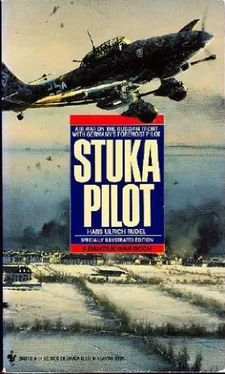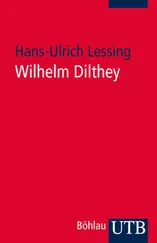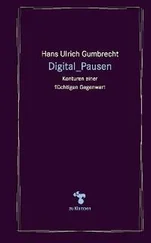Some of our armored units have been broken up and the grenadiers which are part of them are being thrown in separately. The tanks, who have always worked with them as a team, feel at sea and uncertain of themselves without them; the troops which have been assigned to them have no practical experience of co-operating with tanks, and this may result in dangerous surprises. I fail to understand how such an order can have been given; moreover one could hardly imagine a worse choice than the sector selected for the offensive, because of marshes and other difficulties of terrain, when there are so many other favorable alternatives. The infantry, on the other hand, have to advance across flat, open country which is ideal for tanks, but no place for infantry. The enemy takes full advantage of all this and so our infantry is opposed to the Soviet steel monsters without tank support. Why these unnecessary losses? This is courting failure. Who issues these orders? We sit together of an evening brooding over these questions.
On 30th December a wireless signal is received ordering me to come to Berlin immediately and to report to the Reichsmarschall. I fume because I feel that now especially my presence here is indispensable during these difficult operations. I take off for Berlin the same day, going. via Vienna and determined to be back with my comrades in two or three days. Orders are orders. The only luggage I take with me is a large dispatch case with a change of linen and toilet articles. In view of the seriousness of the situation at the front I dismiss the possibility of being kept in Berlin for longer.
On the way I already have an uncomfortable hunch that I have not been sent for anything pleasant. When I was wounded the last time, in November, I received another order grounding me in spite of which I went up again as soon as I got out of hospital Up till now no one has taken the matter up and I had gradually interpreted this silence as tacit acquiescence; but now, I guess, the question has come to a head and I am going to be put on the mat. I am flying to Berlin very reluctantly, knowing as I do that I shall never obey this order. I cannot bear to be merely looking on, giving advice or issuing orders at a time when my country is in direct need, especially as my wide practical experience gives me an advantage over others who lack this training. Success is the fruit of experience and commensurate with it. In spite of having been wounded five times, some of them seriously, I have always had the luck to make a quick recovery and to be able soon afterwards to pilot my aircraft again day after day, year in, year out, up and down the Eastern Front—from the White Sea to South of Moscow, from near Astrakhan to the Caucasus. I know the Russian front inside out. Therefore I feel an unremitting obligation to go on flying and fighting until the guns are silent and our country’s liberty is assured. Physically, I can do this because I have a healthy constitution and a body trained by sport; my fitness is one of the most valuable sources of my strength.
After a short stay with friends in Vienna I land in Berlin three hours later and immediately report by telephone to Karinhall. I would prefer to drive straight out there, so as to be able to fly back without any loss of time. To my bewilderment I am told to remain at the Fürstenhof and to apply in the morning at the Air Ministry for a pass to travel on the Reichsmarschall’s special train which is leaving for the West. My trip is going to be longer than I expected—so much is clear. It does not seem to have anything to do with a reprimand.
We leave for the West the following evening from Grunewald station. This means I shall see the New Year in on board the train. I dare not let my thoughts dwell on my unit; if I do I shall see red. What does the year 1945 hold in store for us?
We are in the Frankfurt area early on 1st January. I hear the roar of aircraft and look out into the graying morning. An armada of fighter planes, flying low, roars past the carriage window. My first thought is: Americans! It is an age since I have seen so many of our aircraft in the sky at the same time. But this is unbelievable: they are all marked with the German swastika and are Me 109s and FW 190s. They are heading westward. Later I am to learn the nature of their mission. Now the train pulls up; it seems we are somewhere near Nauheim-Friedberg. I am met by a car and driven through a tract of forest to a building which resembles an ancient castle. Here I am greeted by the Reichsmarschall’s adjutant. He tells me that the Chief has not arrived yet, I shall have to wait. He does not know what I am here for. I have no choice but to kick my heels here at Western G.H.O.

FW 190
I go for a walk for a couple of hours. What wonderful air in these German woods and hills! I fill my lungs with relish. Why have I been ordered here?—I have been instructed to be back at three o’clock, at which time the Reichsmarschall is expected. I hope I shall not be kept waiting before he receives me. He is not there when I return. Besides myself, a general has arrived, an old friend of mine from my Stuka training days at Graz. He tells me about today’s operations, for the planning and conduct of which he is very largely responsible. Reports continually come in of large-scale attacks on airfields in Belgium and Northern France.
“The aircraft you saw this morning were part of one of the formations we have sent out to make low level attacks on the allied air bases. We hope to be able to destroy so many aircraft that the enemy’s air superiority above their offensive, which has been halted in the Ardennes, will be neutralized.”
I tell the general that such a thing would be impossible on the Eastern Front because the distances which would have to be flown over enemy territory are too great, and to fly at low level is merely inviting heavy losses from the very strong ground defense. Could it be different in the West? It seems improbable. If the Americans are successful with similar attacks over Germany this is only because we have not sufficient protection for our airfields and their approaches, for the simple reason that we cannot divert enough men and material for this purpose. He tells me that today all formations have clearly mapped low level approach routes. In the East we have long since ceased to develop practice from theory; we do just the opposite. One can do no more than give the formation leader his assignment; how he performs it is his affair, for it is he who has to carry it out. At the present time the war in the air has become so variable that one can no longer rely on theories—only formation leaders have the necessary experience at the critical moment and are likely to make the proper decisions. It is a good thing we realized this in the East in time, otherwise it is a sure thing that none of us would be flying any more. Besides, have they not yet grasped the fact that we are helpless against the enemy’s masses of men and material?
For the enemy five hundred aircraft more or less on the ground is not decisive, as long as their crews remain in action. It would be infinitely better to use the fighters which have been saved up for so long over our own front to clear the air space above it. If we could remove for a while the nightmare of the allies’ immense air superiority we could give our comrades on the ground a chance to get their second wind. And movements of troops and supplies behind the lines could be carried out unmolested. Any enemy aircraft we might destroy would in most cases be a genuine loss, because the crews would be lost with them:
All these reflections pass through my mind. A few hours later the final result of the operation confirms my misgivings. Five hundred allied aircraft have been destroyed on the ground; over two hundred and twenty of ours with their crews have failed to return. Among those lost today are veteran formation leaders, old timers of which so few are left. It saddens me. Tonight the operation will be reported to the Reichsmarschall and to the Supreme Commander as a great victory. Is this intentional deception, or exaggerated personal ambition?
Читать дальше













